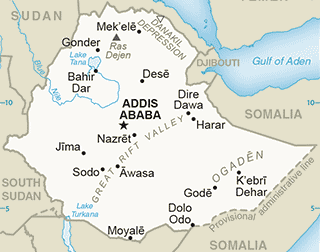
Elections to fill the 190 seats in the regional parliament were held Sept. 9 in Ethiopia’s restive northern region of Tigray—in defiance of a federal government order suspending all polls. Elections in Ethiopia’s nine regions had been scheduled for August, but indefinitely postponed in March due to the COVID-19 pandemic. The central government in Addis Ababa is refusing to recognize the election. Authorities barred journalists from travelling to Tigray to cover the election, with security officers even removing several reporters from a plane bound for the regional capital, Mekele.
Tigray’s governing party, the Tigray People’s Liberation Front (TPLF), led the armed struggle that toppled the brutal regime of Mengistu Haile Mariam in 1991. Leaders from the small ethnic group, which makes up only 6% of Ethiopia’s 110 million population, went on to lead the country’s governing coalition, the Ethiopian People’s Revolutionary Democratic Front (EPRDF), for nearly 30 years. But that ended after anti-government protests swept Prime Minister Abiy Ahmed Ali to power in 2018. TPLF leaders complain that they have since been unfairly targeted in corruption prosecutions, removed from top positions, and generally scapegoated for the country’s problems.
Tigray regional leaders deny they are seeking independence. But the most extreme of the five parties contesting in the polls is the Tigray Independence Party, which openly advocates secession from Ethiopia. (Al Jazeera, Africa News, The East African, NYT)





Ethiopia slipping toward civil war
Ethiopia’s Prime Minister Abiy Ahmed has ordered a military troops to Tigray state, following an alleged attack on an army base. Abiy accused the region’s ruling party, the Tigray People’s Liberation Front (TPLF), of launching the attack on he base at Mekele. He said the he attack resulted in “many martyrs, injuries and property damage.” The attack follows a dispute between the central government and Tigray state over assigning a new regional general. (BBC News, Al Jazeera, Reuters)
Massacre reported in Tigray
Amnesty International reports a massacre of “likely hundreds” of farm-workers at Mai-Kadra in Tigray state Nov. 9, apparently targeted because of their Amharic ethncity. But the account is sketchy, as the government has cut communications to the region, and the report emerges partially from an Amhara militia that has been sent in to back up government forces.